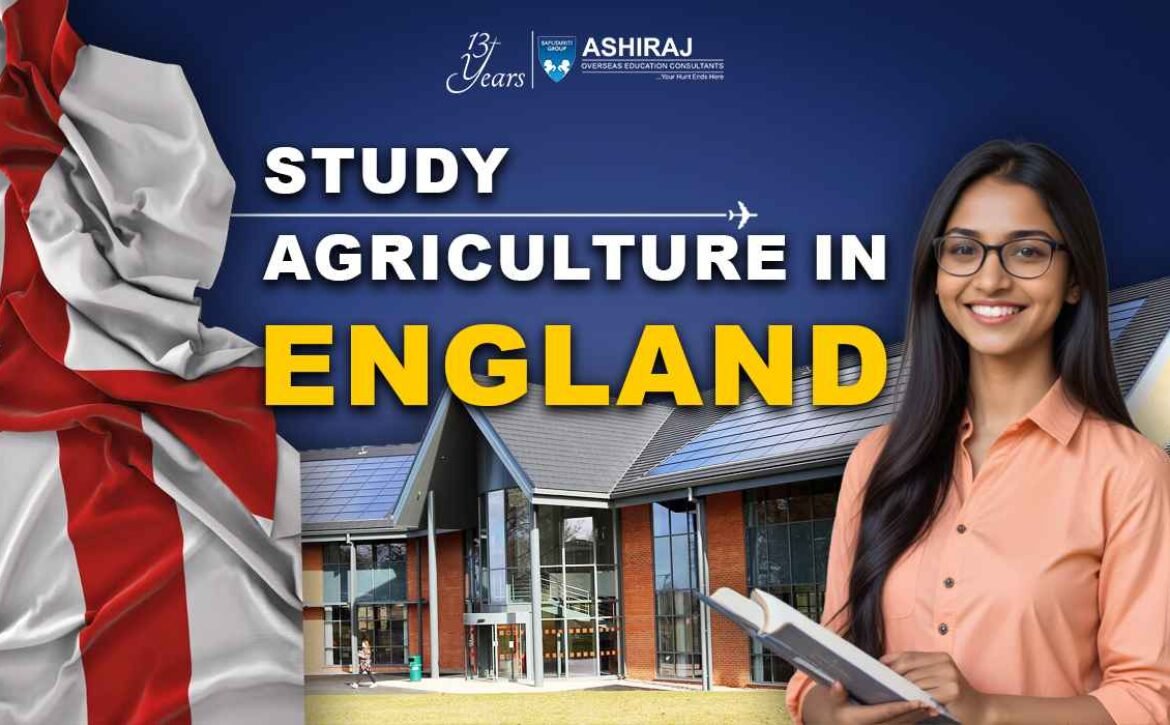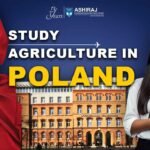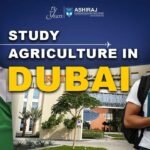
Agriculture in England
Agriculture in England has long been an integral part of its cultural and economic landscape, shaping both its rural character and national identity. Spanning centuries, English agriculture has evolved from medieval manors to modernized, technologically advanced farms, yet it remains rooted in traditions that honor the land and its productivity. With a diverse array of landscapes, ranging from the rolling hills of the Cotswolds to the fertile plains of East Anglia, England boasts a rich tapestry of agricultural practices, each tailored to its unique environment.
The agricultural sector in England plays a pivotal role in supplying the nation with food, contributing to its food security and supporting rural livelihoods. From the iconic fields of golden wheat to the picturesque orchards of Devon, England’s agricultural heritage is celebrated not only for its productivity but also for its scenic beauty. However, modern challenges such as climate change, sustainability, and fluctuating market demands continually reshape the agricultural landscape, prompting innovation and adaptation within the industry. As England looks to the future, balancing tradition with innovation will be key to ensuring the continued success and resilience of its agriculture sector.
Why to Study Agriculture in England?
- Rich Agricultural Heritage: England boasts a centuries-old agricultural tradition, offering students a chance to immerse themselves in a culture deeply intertwined with the land.
- Diverse Agricultural Landscapes: From lush meadows to fertile plains, England’s diverse geography provides a hands-on learning experience in various farming practices.
- Cutting-Edge Research Facilities: Renowned agricultural research institutions in England offer state-of-the-art facilities and opportunities for groundbreaking research in fields like sustainable farming and crop genetics.
- Internationally Recognized Education: Universities in England are globally respected for their agricultural programs, providing students with a solid academic foundation and opportunities for networking and collaboration.
- Practical Learning Opportunities: Students studying agriculture in England benefit from practical learning experiences, including farm visits, internships, and industry placements, enhancing their employability upon graduation.
- Thriving Agricultural Industry: With a thriving agricultural industry, England offers ample career prospects in areas such as agribusiness, food production, and environmental management.
- Focus on Sustainability: England’s commitment to sustainable agriculture provides students with insights into environmentally friendly farming practices and the importance of preserving natural resources.
- Networking and Career Opportunities: Studying agriculture in England opens doors to a vast network of industry professionals, potential employers, and research collaborators, paving the way for a successful career in agriculture.
By studying agriculture in England, students can not only gain a world-class education but also contribute to shaping the future of sustainable farming practices in a country renowned for its agricultural excellence.
Top Universities to Study Agriculture in England
University | QS World University Ranking 2023 | Type of University | Average Annual Fees | Programs Offered |
University of Reading | 25 | Public | £9,250 – £21,500 | Agriculture, Horticulture, Agricultural Economics |
University of Cambridge | 4 | Public | £9,250 – £24,500 | Agriculture, Plant Sciences, Agricultural Engineering |
University of Oxford | 2 | Public | £9,250 – £25,700 | Agriculture, Environmental Sciences, Agronomy |
Harper Adams University | Not Ranked | Private | £9,250 – £18,000 | Agriculture, Agribusiness, Animal Sciences |
University of Warwick | 19 | Public | £9,250 – £25,900 | Agricultural Technology, Food Science, Sustainable Agriculture |
- University of Reading: Ranked 25th globally, it offers programs in Agriculture, Horticulture, and Agricultural Economics, with average annual fees ranging from £9,250 to £21,500.
- University of Cambridge: Ranked 4th globally, it provides courses in Agriculture, Plant Sciences, and Agricultural Engineering, with fees averaging between £9,250 and £24,500 annually.
- University of Oxford: Ranked 2nd globally, it offers programs in Agriculture, Environmental Sciences, and Agronomy, with fees ranging from £9,250 to £25,700 per year.
- Harper Adams University: While not ranked globally, it specializes in Agriculture, Agribusiness, and Animal Sciences, with fees averaging between £9,250 and £18,000 annually.
- University of Warwick: Ranked 19th globally, it offers courses in Agricultural Technology, Food Science, and Sustainable Agriculture, with average annual fees ranging from £9,250 to £25,900.
Choosing any of these top universities in England for agriculture ensures access to world-class education and diverse programs tailored to meet the demands of the ever-evolving agricultural industry.
Course Curriculum for Agriculture in England
- Core Subjects: Agriculture courses in England typically cover core subjects such as crop science, soil management, and animal husbandry, providing students with a comprehensive understanding of agricultural practices.
- Specialized Modules: Students delve into specialized modules tailored to their interests, including agricultural economics, sustainable agriculture, and agribusiness management, allowing for a deeper exploration of specific areas within the field.
- Practical Training: The curriculum emphasizes hands-on learning through practical training sessions, farm visits, and fieldwork, enabling students to apply theoretical knowledge to real-world agricultural settings.
- Research Projects: Students engage in research projects that address current challenges in agriculture, fostering critical thinking and problem-solving skills while contributing to the advancement of agricultural science and technology.
- Industry Exposure: Agriculture programs in England often incorporate industry placements and internships, providing students with valuable exposure to the agricultural sector and networking opportunities with professionals in the field.
- Environmental Focus: With growing concerns about sustainability, many agriculture courses in England now include modules on environmental conservation, organic farming, and agroecology, preparing students to address environmental issues within the agricultural industry.
- Technological Integration: The curriculum integrates emerging technologies such as precision farming, remote sensing, and data analytics, equipping students with the skills needed to leverage technology for improved agricultural productivity and efficiency.
- Global Perspectives: Agriculture courses in England often incorporate global perspectives, examining international agricultural systems, trade policies, and food security issues, preparing students for careers in a globalized agricultural economy.
Studying agriculture in England offers a dynamic and multidisciplinary curriculum that equips students with the knowledge, skills, and practical experience needed to thrive in the diverse and evolving agricultural landscape.
Eligibility Criteria & Admission Requirements for MS in Agriculture in England
- 1. Language Proficiency: Applicants are typically required to demonstrate proficiency in English by providing scores for either the IELTS or TOEFL exams. Common minimum scores include IELTS: 6.5 overall with no less than 6.0 in each component or TOEFL: 90 overall with a minimum of 20 in each section.
- Standardized Tests: Some universities may require applicants to submit scores for either the GRE or GMAT exams. Minimum scores vary by institution but often range from GRE: 300 combined on verbal and quantitative sections or GMAT: 600.
- Passport & Student Visa: International students must possess a valid passport and obtain a student visa to study agriculture in England. Visa requirements and application processes may vary depending on the student’s country of origin.
- Academic Certificates: Applicants are typically required to provide transcripts and certificates demonstrating completion of previous academic qualifications, such as high school diplomas or bachelor’s degrees.
- Work Experience: While not always mandatory, some universities may consider relevant work experience in agriculture or related fields as part of the application process, enhancing the applicant’s profile.
Exam | Minimum Score |
IELTS | 6.5 overall, with no less than 6.0 in each component |
TOEFL | 90 overall, with at least 20 in each section |
GRE | 300 combined on verbal and quantitative sections |
GMAT | 600 |
Meeting these eligibility criteria ensures that prospective students are well-prepared to pursue their studies in agriculture in England, setting them on a path towards academic success and professional growth in this dynamic field.
Documents Required for Studying Agriculture in England
- Passport: A valid passport is essential for international students applying to study agriculture in England, serving as proof of identity and nationality.
- Letters of Recommendation (LOR): Typically, two letters of recommendation from academic or professional sources are required to support the student’s application, providing insights into their character, academic abilities, and potential for success in the program.
- Statement of Purpose (SOP): An SOP is a personal statement outlining the applicant’s academic background, career goals, reasons for choosing the specific agricultural program, and how it aligns with their aspirations.
- Curriculum Vitae (CV): A comprehensive CV detailing the applicant’s educational qualifications, work experience, research projects, publications (if any), extracurricular activities, and any relevant achievements or awards.
- Official High School Transcripts and Certificates: Applicants must submit official transcripts and certificates from their high school or secondary education institution, demonstrating their academic performance and completion of relevant coursework.
- Work Experience Certificate: If applicable, a work experience certificate documenting any relevant professional experience in agriculture or related fields should be provided to strengthen the applicant’s profile.
- Proof of Financial Resources: International students are required to demonstrate sufficient financial resources to cover tuition fees, living expenses, and other costs associated with studying in England, typically through bank statements or sponsorship letters.
Ensuring the timely submission of these documents is crucial for a successful application to study agriculture in England, facilitating the admissions process and increasing the likelihood of acceptance into the desired program.
Admission Process for Agriculture in England
- Research: Begin by researching universities in England offering agriculture programs. Consider factors such as rankings, curriculum, faculty expertise, and facilities to find the best fit for your academic and career goals.
- Application Submission: Complete the university’s online application form for the agriculture program of your choice. Ensure that you provide accurate personal and academic information and submit all required documents.
- Document Submission: Gather and submit the necessary documents, including transcripts, standardized test scores (if required), letters of recommendation, statement of purpose, curriculum vitae, and proof of language proficiency.
- Application Review: The university’s admissions committee will review your application, considering factors such as academic qualifications, test scores, letters of recommendation, and the strength of your statement of purpose.
- Interview (if required): Some universities may conduct interviews as part of the admissions process to assess the applicant’s suitability for the program and clarify any questions regarding their application.
- Admission Decision: After reviewing your application, the university will notify you of their admission decision. If accepted, you will receive an offer letter outlining the terms and conditions of your admission.
- Acceptance and Enrollment: Upon receiving an offer of admission, follow the university’s instructions to accept the offer and complete the enrollment process, including payment of any necessary fees and securing accommodation.
- Visa Application: International students must apply for a student visa to study agriculture in England. Follow the visa application process outlined by the UK government and submit any required documents, including your offer letter and proof of financial resources.
By following these steps diligently, you can navigate the admission process for studying agriculture in England smoothly, ensuring a successful start to your academic journey in this vibrant field.
“Education is the most powerful weapon which you can use to change the world.”
Nelson Mandela
Cost of Agriculture Course in England
- Tuition Fees: The cost of tuition for agriculture programs in England varies depending on the university and the level of study. On average, undergraduate tuition fees range from £9,250 to £25,700 per year for domestic students and may be higher for international students.
- Living Expenses: In addition to tuition fees, students must budget for living expenses, including accommodation, food, transportation, and personal expenses. The cost of living in England’s major cities, such as London, may be higher than in smaller towns or rural areas.
- Accommodation: The cost of accommodation depends on factors such as location, type of accommodation (university halls, private rentals), and amenities. On-campus accommodation may range from £4,000 to £10,000 per year, while private rentals may vary.
- Books and Supplies: Students should budget for textbooks, stationery, and other academic materials required for their agriculture courses. These expenses may vary but typically amount to a few hundred pounds per year.
- Health Insurance: International students may be required to purchase health insurance coverage during their studies in England. The cost of health insurance varies depending on the provider and the level of coverage desired.
- Travel Expenses: Students should budget for travel expenses, including flights to and from England, as well as local transportation costs for commuting to campus and exploring the country.
- Additional Fees: Some universities may charge additional fees for services such as student union membership, laboratory usage, or extracurricular activities. It’s essential to consider these potential extra costs when planning your budget for studying agriculture in England.
Understanding the cost of studying agriculture in England is crucial for prospective students to make informed decisions about their education and budget effectively for their time abroad in pursuit of their academic and career aspirations in the field of agriculture.
Scholarships for Agriculture Courses in England
Scholarship Name | Amount | Application Deadline |
Royal Agricultural University Scholarship | Up to £3,000 per year | May 1st |
University of Reading Excellence Scholarships | £2,000 – £8,000 | June 30th |
Harper Adams University Scholarships | Varies | April 15th |
Cambridge Trust Scholarships | Varies | December 3rd |
Warwick Undergraduate Global Excellence Scholarship | Up to £6,000 per year | March 31st |
- Royal Agricultural University Scholarship: Offers up to £3,000 per year to undergraduate students pursuing agriculture-related degrees. Application deadline is May 1st.
- University of Reading Excellence Scholarships: Awards ranging from £2,000 to £8,000 to high-achieving undergraduate students. The deadline for application is June 30th.
- Harper Adams University Scholarships: Various scholarships are available for undergraduate agriculture students, with the application deadline on April 15th.
- Cambridge Trust Scholarships: Offers scholarships of varying amounts to international students applying to the University of Cambridge. The deadline for application is December 3rd.
- Warwick Undergraduate Global Excellence Scholarship: Provides up to £6,000 per year to high-achieving undergraduate students at the University of Warwick. Application deadline is March 31st.
These scholarships offer financial assistance to students pursuing agriculture studies in England, helping to alleviate the financial burden of tuition fees and living expenses, thereby enabling students to focus on their academic and professional development in the field of agriculture.
Career Opportunities After Agriculture in England
Job Profile | Average Salary (per year) |
Agricultural Manager | £30,000 – £50,000 |
Agronomist | £25,000 – £35,000 |
Farm Consultant | £20,000 – £40,000 |
Agricultural Engineer | £25,000 – £45,000 |
Food Scientist | £25,000 – £40,000 |
- Agricultural Manager: Responsible for overseeing agricultural operations, managing staff, and ensuring the efficient running of farms or agricultural businesses. Salary ranges from £30,000 to £50,000 per year.
- Agronomist: Specializes in crop production and soil management, providing advice to farmers on improving yields and sustainability. Salary typically ranges from £25,000 to £35,000 annually.
- Farm Consultant: Offers expert advice to farmers on business management, crop selection, and implementing sustainable practices. Salary can vary widely, ranging from £20,000 to £40,000 per year.
- Agricultural Engineer: Designs and implements machinery and technology to improve efficiency and productivity on farms. Average salary falls between £25,000 and £45,000 annually.
- Food Scientist: Conducts research and development to improve food quality, safety, and production processes. Salary ranges from £25,000 to £40,000 per year.
These career opportunities in agriculture in England offer competitive salaries and opportunities for professional growth, attracting individuals passionate about contributing to the sustainable development of the agricultural industry in the region.
Frequently Asked Questions About Agriculture in England
Some of the top universities in England offering agriculture programs include the University of Reading, University of Cambridge, and Harper Adams University.
The average cost of studying agriculture in England varies depending on factors such as tuition fees, living expenses, and accommodation, but undergraduate tuition fees typically range from £9,250 to £25,700 per year for domestic students.
Yes, there are various scholarships available for agriculture students in England, offered by universities, government bodies, and private organizations, with amounts and application deadlines varying.
Career opportunities after studying agriculture in England include roles such as agricultural manager, agronomist, farm consultant, agricultural engineer, and food scientist, with salaries ranging from £20,000 to £50,000 per year.
While work experience is not always mandatory, having relevant experience in agriculture or related fields can enhance your application and provide valuable insights into the industry.
Documents required for applying to agriculture programs in England typically include transcripts, standardized test scores, letters of recommendation, a statement of purpose, curriculum vitae, and proof of language proficiency.
Yes, international students can study agriculture in England by applying to universities offering agriculture programs and obtaining a student visa.
The application process for studying agriculture in England involves researching universities, completing application forms, submitting required documents, attending interviews (if required), and obtaining a student visa.
Yes, there are job opportunities in sustainable agriculture in England, with a growing focus on environmentally friendly farming practices and conservation efforts.
Students can find internships or industry placements in agriculture in England through university career services, industry networks, online job boards, and professional organizations within the agricultural sector.




